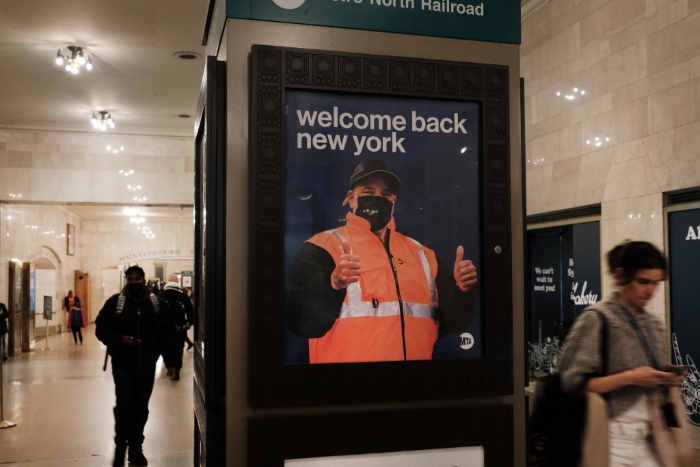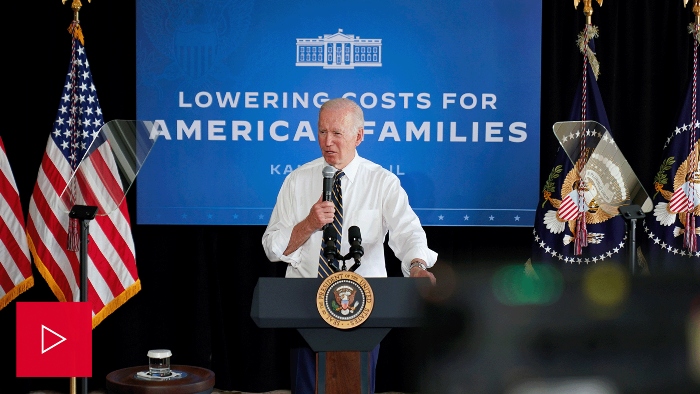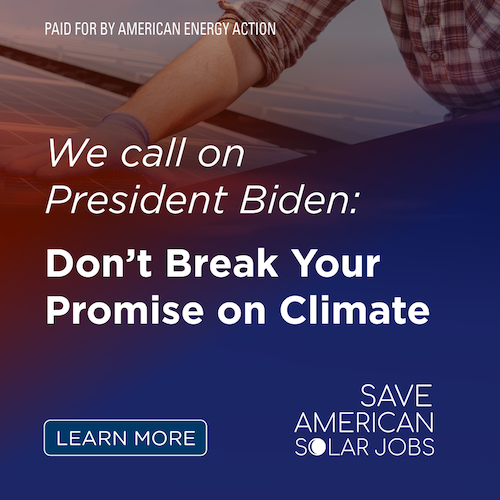| | |  | BY JOANNE KENEN | | With help from Tyler Weyant
| 
People walk through Grand Central Terminal in New York City. | Spencer Platt/Getty Images | BREATHING EASIER — The other day, I sat across the desk of a leading Covid expert. We were both unmasked. And we were inhaling what was probably the safest, healthiest, best monitored, and least virusy air I’ve breathed in years. I was talking to Joseph Allen — an associate professor at Harvard’s T.H. Chan School of Public Health and director of itsHealthy Buildings program — about ventilation, filtration, and safe indoor air. He was both aggravated and optimistic. Aggravated because we are still not doing things that we know can reduce Covid infection and deaths (and slash Covid risks in schools) even though it’s not that complicated. And pots of American Rescue Plan money available for schools have not been fully tapped. Optimistic because, however belatedly, buildings and indoor spaces are becoming safer — in part because big companies are figuring out that nontoxic buildings are better than “sick” ones. Allen’s research has shown that our lungs like healthy buildings, but so do our brains. We think, learn and perform better when we’re not inhaling invisible toxic gunk. At the start of the pandemic, which is beginning to feel like a lifetime ago, scientists and public health officials focused on “fomites” — coronavirus transmission via surfaces. While cleaning is never a bad idea, elevator buttons, subway turnstiles and grocery packages did not turn out to be a big factor in Covid transmission. Attention turned to respiratory droplets, prompting all those circles and decals on floors reminding us to stay six feet apart, which was not the spatial amulet we hoped it would be. Droplets are a factor but not, Allen and like-minded scientists argued from early 2020, the biggest danger. What we’ve been overlooking, or at least underemphasizing, is that smaller particles transmit the virus. A five-micron particle can travel more than six feet and linger in the air for 30 minutes, sometimes more, invisibly and invidiously. If you ignore that — which, Allen noted, is largely what the Centers for Disease Control and Prevention and other expert groups have done — you end up bleach-wiping ketchup bottles instead of opening a window. A better solution, for Covid and other ailments: improved ventilation — bringing more outside air into buildings and better circulating air. And filtration — cleaning the indoor air. Many, if not enough, schools and businesses have adopted them. And they work, in all kinds of buildings, from homeless shelters to high-rises. “People often ignore the indoor environment when they think about their health,” Allen told Nightly. “They think about exercise, eating healthy, not smoking, outdoor pollution. But not about where we spend most of our time: indoors.” That’s changing. Ventilation has begun to appear far more regularly in virus-fighting strategies, which is “the crux,” Allen said, given that this coronavirus is spread “nearly entirely indoors” in buildings with poor ventilation and filtration. Buildings “were designed to protect equipment not people,” he said. “And you wonder why we have a disaster on our hands.” The fixes basically involve bringing in more outdoor air, using better filters, and air changeovers four to six times per hour. Without getting too technical about why MERV 13 filters are better than MERV 8s, let’s just say it’s not too hard, nor is it usually too expensive. In some cases it’s as simple as adjusting the settings on air intake systems in a building. In others, it’s getting higher quality filters. Sometimes it’s just replacing some windows so they open. And yes, sometimes it’s more complicated. But most places — work, school or play — could do this without going broke. Portable machines with HEPA air filters can help. And there are versions for homes, too. Welcome to POLITICO Nightly. Reach out with news, tips and ideas at nightly@politico.com. Or contact tonight’s author on Twitter at @JoanneKenen.
| |
| | A message from Save American Solar Jobs: The Biden administration’s Commerce Department is threatening to implement massive tariffs of up to 250% on solar panel components imported by American solar manufacturers for assembly in the U.S. This tariff threat is devastating the American solar industry, costing U.S. jobs, hurting domestic manufacturing, raising inflation and undermining efforts to address climate change.
President Biden: Tell Your Commerce Department to Stop Undermining U.S. Solar Manufacturing. | | | Allen has been particularly frustrated that more schools didn’t draw on “off the shelf, plug and play” technology. “I’ve answered every call from every school that’s ever called me,” he said. “Many places did it well. People who got the message did it well.” But indoor air just hasn’t gotten the attention it needs, he said, including from top U.S. public health officials. “The message didn’t take hold,” he said, although more recently the Biden administration has elevated its importance. The message should have been: “Vaccines. Therapeutics. Masking. Testing — Ventilation.” “Building science was not at the table,” he said. He put it this way at another moment: “It’s been neglected and ignored for a long time. … Public health hasn’t had a seat at the table when it comes to our built environment.” While it may take time to change federal laws, standards and codes, businesses are moving ahead, he said. “If you convince a CEO that this is important on a Friday — on Monday morning it will change.”
| | — Senate fails to pass abortion rights bill — again: The Senate once again failed to advance abortion rights legislation today, in a largely symbolic effort Democrats mounted in response to the Supreme Court’s draft opinion overturning Roe v. Wade. In a 49-51 vote, the Senate rejected the Democratic legislation, with Sen. Joe Manchin (D-W.Va.) and all Republicans voting against the measure. While the outcome was no surprise and mirrored a similar vote on abortion protections the Senate took in February, Majority Leader Chuck Schumer suggested the court’s draft opinion, published by POLITICO last week, had raised the stakes. — U.S. grapples with Russian blockade endangering global food supplies: A growing number of U.S. lawmakers are pressing the Biden administration to establish a humanitarian corridor in the Black Sea , in an effort to circumvent a Russian military blockade that’s threatening to financially strangle Ukraine while holding back millions of tons of grain from the world food supply. European Union officials, with U.S. help, are set to announce a new effort to ship Ukrainian grain over land routes via rail and truck, but the land routes are expensive and time-consuming to establish, and even the planners acknowledge they won’t make up for the volume that can be moved by seaport.
| 
| — U.S. inflation hit 8.3 percent last month but slows from 40-year high: Inflation slowed in April after seven months of relentless gains, a tentative sign that price increases may be peaking while still imposing a financial strain on American households. Consumer prices jumped 8.3 percent last month from 12 months earlier, the Labor Department said today. That was below the 8.5 percent year-over-year surge in March, which was the highest rate since 1981. — Biden administration reups Child Tax Credit portal: An online portal designed to help very low-income people get the expanded Child Tax Credit reopened today, according to the nonprofit group that designed it in cooperation with the Biden administration. The group, Code for America, said it also would collaborate with state benefits agencies to reach families that may not be aware they are eligible for the federal program. — New York judge to drop contempt order against Trump: A New York judge released former President Donald Trump today from a judicial order holding him in contempt of court — on the condition that he pay a $110,000 fine. Trump, whose business dealings are under a civil investigation by the New York state Attorney General’s Office, failed to comply with a December subpoena for financial documents. On April 25, Justice Arthur Engoron of the New York Supreme Court for New York County held Trump in contempt of court and ordered him to pay $10,000 a day until he complied with the subpoena. — Senate confirms Biden’s FTC nominee despite Republican opposition: The Senate voted 51-50 today to confirm Alvaro Bedoya as a member of the Federal Trade Commission , adding a progressive privacy advocate to the agency and restoring a Democratic majority at a time when the FTC is poised to take on corporate giants in industries such as tech. Vice President Kamala Harris cast the tie-breaking vote for the Georgetown University law professor.
| |
| | DON'T MISS DIGITAL FUTURE DAILY - OUR TECHNOLOGY NEWSLETTER, RE-IMAGINED: Technology is always evolving, and our new tech-obsessed newsletter is too! Digital Future Daily unlocks the most important stories determining the future of technology, from Washington to Silicon Valley and innovation power centers around the world. Readers get an in-depth look at how the next wave of tech will reshape civic and political life, including activism, fundraising, lobbying and legislating. Go inside the minds of the biggest tech players, policymakers and regulators to learn how their decisions affect our lives. Don't miss out, subscribe today. | | | | | | | CIRCLING BACK ON YOUR RSVP — What if the United States held a summit and nobody came? The Summit of the Americas, which Biden is hosting in Los Angeles next month, isn’t quite at that point of crisis. But judging from the criticisms already leveled by Latin American leaders, congressional aides and others, U.S. officials will be on the defensive through much of the gathering, Nahal Toosi writes. Some foreign leaders are slamming Washington for planning to exclude three adversarial, non-democratic regimes — Cuba, Venezuela and Nicaragua — from the gathering, and threatening not to show up themselves. Others are simply wondering why the Biden administration hasn’t yet sent invitations for the event. Just about everyone fears the agenda will be thin, offering few concrete plans to improve the region’s economy and trade links — the priority for many of the hemisphere’s leaders — while dealing more with U.S. concerns about migration. Even reports that the Biden administration is working on an “economic framework” for the region are being met with shrugs in some corners as being too little at this stage of Biden’s presidency. The criticisms are a signal of deep frustration in Latin America with Biden, whose policies toward the region many foreign officials and analysts deem as lackluster, driven by domestic politics and not all that substantively different from those of former President Donald Trump, who often bullied and berated the United States’ southern neighbors.
| |
| | A message from Save American Solar Jobs:  
| | | | | | |
| | |
| | STEP INSIDE THE WEST WING: What's really happening in West Wing offices? Find out who's up, who's down, and who really has the president’s ear in our West Wing Playbook newsletter, the insider's guide to the Biden White House and Cabinet. For buzzy nuggets and details that you won't find anywhere else, subscribe today. | | | | | | | TOGETHER AGAIN — Nightly’s Tyler Weyant writes: If you’re reading this newsletter soon after it hit your inbox, I am currently dressed as fancily as I have been in about two and a half years, holding a gin and tonic and sneaking sips in briefly unmasked moments. Washington gathers tonight for yet another soiree — this time, the Washington Press Club Foundation’s 76th Annual Congressional Dinner. Staffers, members and journalists will mingle, drink and engage in rituals that have constituted a backbone of Official D.C. Life for decades. And before that, they will have gone through one heck of a Covid test. My dinner started at about 7:45 a.m., with the cracking open of a Lucira Check It Covid-19 test kit. If you need convincing about the seriousness of this test, which the company says is “98 percent accurate compared to one of highest sensitivity lab PCR tests,” look no further than the two batteries contained in the box. The familiar swabbing of the nostrils was rote enough, but popping a test tube into the futuristic health Tamagotchi testing base was new. After 30 minutes, I got my green light for dinner. Literally: A green light appeared next to negative, leading me to a new adventure, uploading my test to obtain a digital pass certifying my good health. Yet all of this feels less complicated than the event itself. Nervous? I’d assume there are two camps at dinners like this: those who are nervous, and those who are lying about not being nervous. I trust the organizers to have put in all the health protocols they think are needed. I’m still a little nervous. (Note: POLITICO is a sponsor of the event.) I am quite aware of the Covid aftermath of the Gridiron Dinner and White House Correspondents Dinner. People I know, people I work with, people I care about, got sick. And yes, vaccines work and I have not heard of much acute illness. But as with so much Covid anxiety, the threat lingers and gnaws in the recesses of your skull. I’m attending tonight because I’m about to start a new role here at POLITICO. (Hill staffers, let’s grab coffee soon.) But really, the dinner isn’t different from the weddings I’ve attended in the last year, or the odd sporting event I’ve popped into. I’ll be having a nice time, feeling normal. And then, from the back of my brain, a whisper will echo: “Remember Covid?” When that happens, let’s hope my mask will hide the grimace in between the sips.
| |
| | A message from Save American Solar Jobs: The Biden administration’s Commerce Department is threatening to implement massive tariffs of up to 250% on solar panel components imported by American solar manufacturers for assembly in the U.S. This tariff threat is devastating the American solar industry, costing U.S. jobs, hurting domestic manufacturing, raising inflation and undermining efforts to address climate change.
There is a better solution already on the table. Congress should pass the clean energy tax credits and incentives that have been stalled since last year. These policies will drive the expansion of domestic solar panel component manufacturing and ensure we have the infrastructure needed to fight climate change and create jobs.
President Biden: Tell Your Commerce Department to Stop Undermining U.S. Solar Manufacturing. | | | Did someone forward this email to you? Sign up here. | |
|
| | Follow us on Twitter | | | FOLLOW US | | |
| |
No comments:
Post a Comment
Note: Only a member of this blog may post a comment.